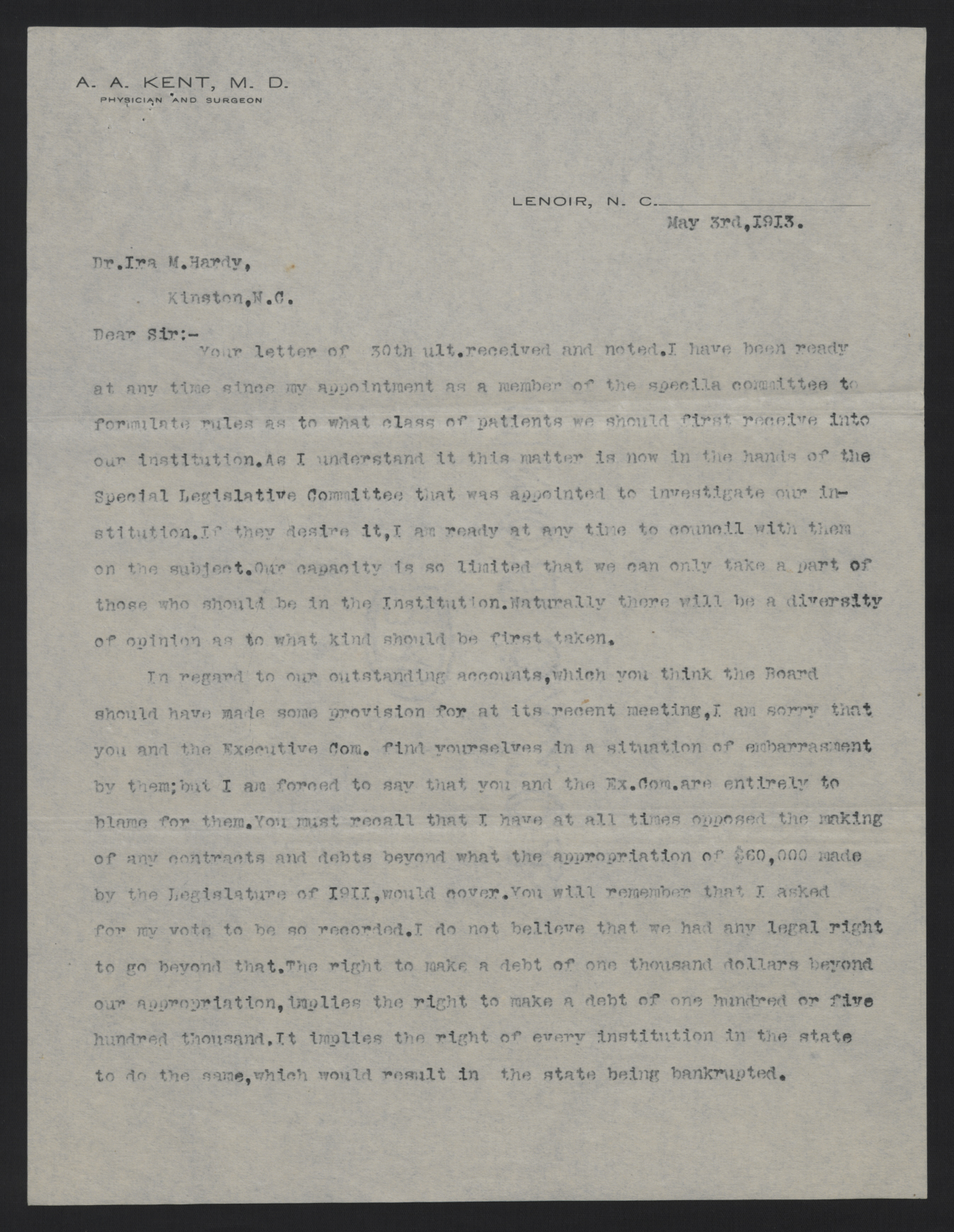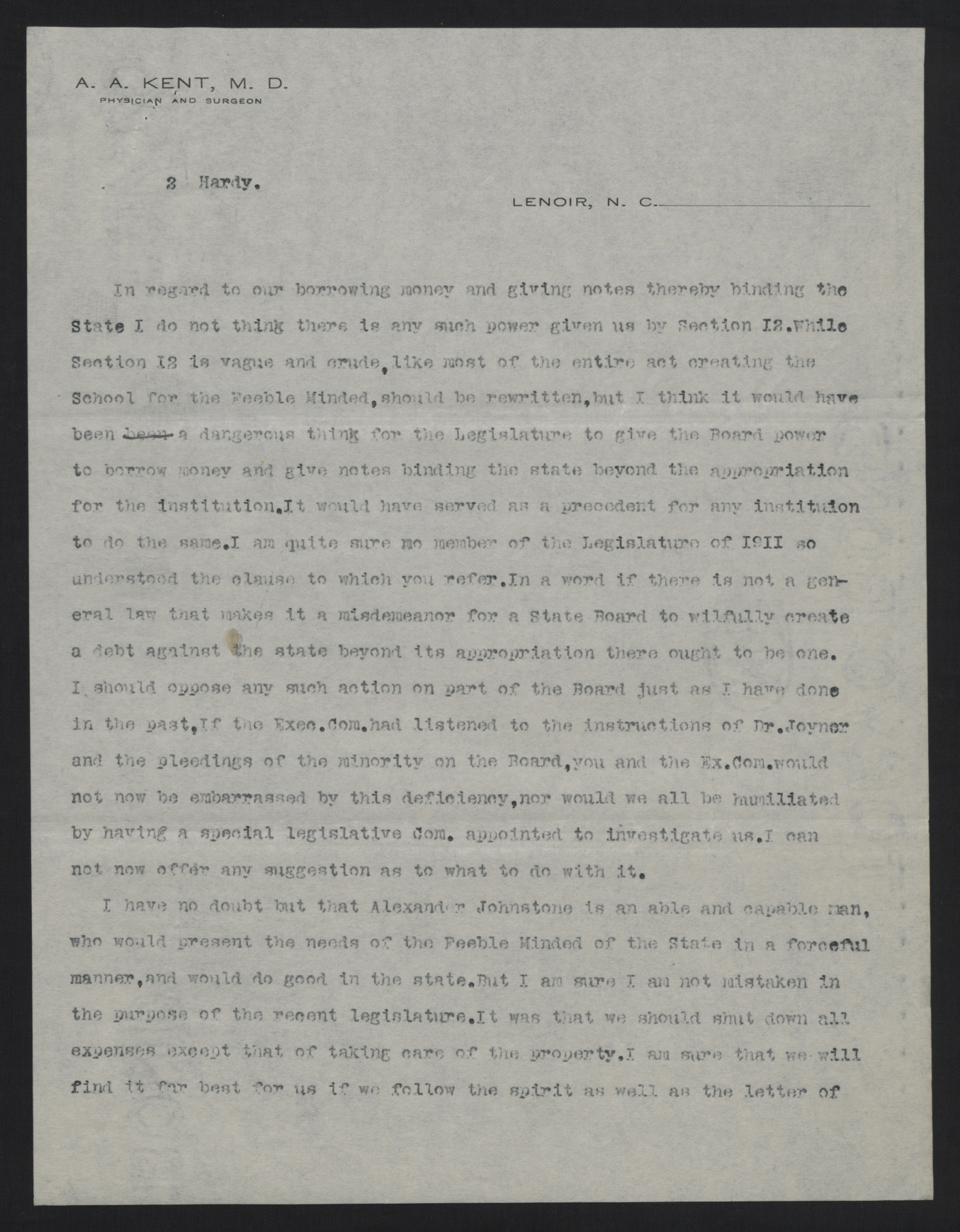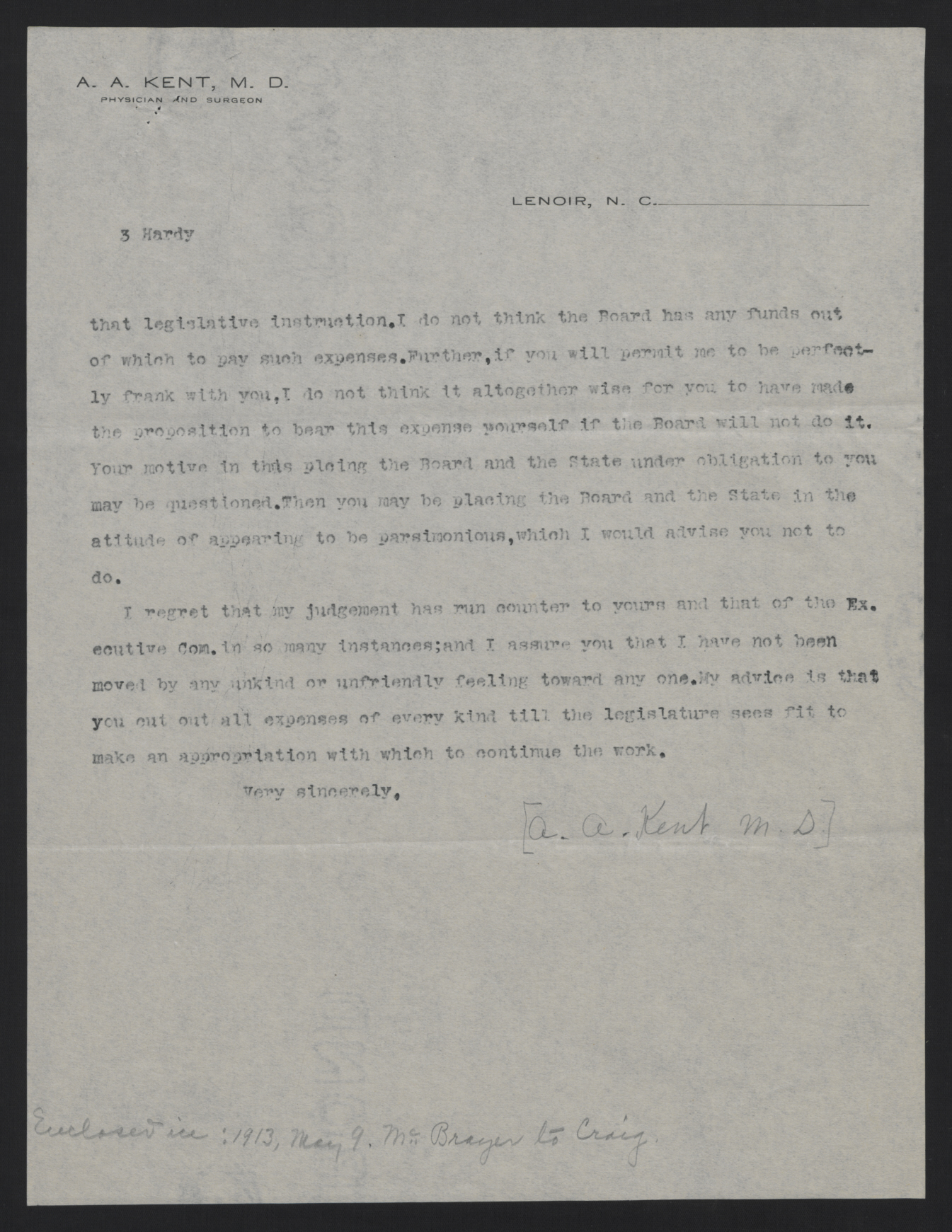A. A. KENT, M.D.
PHYSICIAN AND SURGEON
LENOIR, N.C. May 3rd, 1913.
Dr. Ira M. Hardy,
Kinston, N.C.
Dear Sir:-
Your letter of 30th ult. received and noted. I have been ready at any time since my appointment as a member of the specila committee to formulate rules as to what class of patients we should first receive into our institution. As I understand it this matter is now in the hands of the Special Legislative Committee that was appointed to investigate our institution. If they desire it, I am ready at any time to council with them on the subject. Our capacity is so limited that we can only take a part of those who should be in the Institution. Naturally there will be a diversity of opinion as to what kind should be first taken.
In regard to our outstanding accounts, which you think the Board should have made some provision for at its recent meeting, I am sorry that you and the Executive Com. find yourselves in a situation of embarrasment by them; but I am forced to say that you and the Ex. Com. are entirely to blame for them. You must recall that I have at all times opposed the making of any contracts and debts beyond what the appropriation of $60,000 made by the Legislature of 1911, would cover. You will remember that I asked for my vote to be so recorded. I do not believe that we had any legal right to go beyond that. The right to make a debt of one thousand dollars beyond our appropriation, implies the right to make a debt of one hundred or five hundred thousand. It implies the right of every institution in the state to do the same, which would result in the state being bankrupted.
In regard to our borrowing money and giving notes thereby binding the State I do not think there is any such power given us by Section 12. While Section 13 is vague and crude, like most of the entire act creating the School for the Feeble Minded, should be rewritten, but I think it would have been a dangerous thing for the Legislature to give the Board power to borrow money and give notes binding the state beyond the appropriation for the institution. It would have served as a precedent for any institution to do the same. I am quite sure no member of the Legislature of 1911 so understood the clause to which you refer. In a word if there is not a general law that makes it a misdemeanor for a State Board to wilfully create a debt against the state beyond its appropriation there ought to be one. I should oppose any such action on part of the Board just as I have done in the past. If the Exec. Com. had listened to the instructions of Dr. Joyner and the pleedings of the minority on the Board, you and the Ex. Com. would not now be embarrassed by this deficiency, nor would we all be humiliated by having a special legislative Com. appointed to investigate us. I can not now offer any suggestion as to what to do with it.
I have no doubt but that Alexander Johnstone is an able and capable man, who would present the needs of the Feeble Minded of the State in a forceful manner, and would do good in the state. But I am sure I am not mistaken in the purpose of the recent legislature. It was that we should shut down all expenses except that of taking care of the property. I am sure that we will find it far best for us if we follow the spirit as well as the letter of that legislative instruction. I do not think the Board has any funds out of which to pay such expenses. Further, if you will permit me to be perfectly frank with you, I do not think it altogether wise for you to have made the proposition to bear this expense yourself if the Board will not do it. Your motive in this plcing the Board and the State under obligation to you may be questioned. Then you may be placing the Board and the State in the atitude of appearing to be parsimonious, which I would advise you not to do.
I regret that my judgement has run counter to yours and that of the Ex. ecutive Com. in so many instances; and I assure you that I have not been moved by any unkind or unfriendly feeling toward any one. My advice is that you cut out all expenses of every kind till the legislature sees fit to make an appropriation with which to continue the work.
Very sincerely,
[A. A. Kent M.D.]
Enclosed in: 1913, May 9. McBrayer to Craig.
Date:
Sender:
Recipient:
Related People:
Repository:
Collection:
Places:
View More Record Details
Manuscript Type:
Exhibit:
Related Documents
Currently there are no related documents available.



